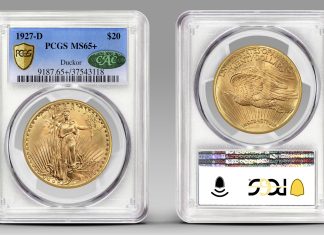 Greek Prime Minister Papandreou’s earlier wishes for some concrete EU offerings that would help stave off a negative outcome for his country’s debt problems were apparently on their way to becoming true this morning.
Greek Prime Minister Papandreou’s earlier wishes for some concrete EU offerings that would help stave off a negative outcome for his country’s debt problems were apparently on their way to becoming true this morning.
Greece was given more time to deal with its Mount Olympus-sized pile of debt and the sense of relief about the step that the EU took overnight was felt as far away as the bond markets of Ireland and Spain.
Ratings agencies welcomed the fresh life-preserves package as well, except for Fitch’s, that is. The firm at once said that it believes that the commitments made by EU officials signifies an "important and positive step towards securing financial stability in the euro zone" but that Greece is, in effect, facing a "selective default" as the rescue bag of goodies includes private sector participation.
About 159 billion euros (229 billion dollars) in new aid are on offer to Greece, including bondholder contributions and a chip-in by the IMF. The region’s financial institutions will also add some 50 billion euros to the funds and the ECB will now likely accept Greek collateral in the event of a default due to the fact that guarantees will be offered by eurozone member nations.
While most markets welcomed the financial rescue of Greece gold market players exhibited "skepticism" about its efficacy and piled on additional bets in the yellow metal as Friday morning’s dealing began. Some economists have expressed doubts about the ability of the rescue plan to succeed if in fact the EFSF (TARP, European-style) is not augmented in size.
The "default = we win, rescue = we win some more" formula was quickly applied to the bids in bullion ahead of the New York market’s opening. Open interest on COMEX was hovering at over half a million contracts- a half-year high. And thus, the battle for the $1,600 mark recommenced ahead of the weekend.
Veteran RBC market analyst George Gero notes that the 10% jump in the level of open interest in gold comes at a time when COMEX options are set to expire on the 27th, China announces PMI statistics on the 1st, and the US debt ceiling is to be hit on the 2nd. While George labels this convergence as a "perfect storm," he does allow for the possibility that it will be a perfectly volatile storm. The present conditions-in his assessment-present a double-edged sword as latecomers are long at near-record price levels and as protective sell-stops may be planted along the way here.
Spot gold dealings started their New York chapter on Friday with a $7.90 gain and the bid quoted at $1,598.10 per ounce. Silver advanced 56 cents to open at the $39.88 mark per ounce. Platinum also gained, opening at the $1,792.00 per ounce level with a rise of $10.00. Palladium was slightly lower, losing $2.00 to start at the $804.00 per ounce bid level.
Once again, no change was reported in rhodium, still bid at $1,950.00 the troy ounce. There has been a noticeable tightening in physical/allocated rhodium bid/offer spreads; they are now only $100-wide on Kitco’s trading pages, and, at that level, the differential is rather competitive with the average gold coin bid-offer gap. As opined on Bloomberg yesterday, the next 25 to 35 percent gain is likelier to be seen in PGM group metals (esp. palladium and/or rhodium) rather than in the overextended gold and/or silver niche. Consider the fundamentals, for starters.
South Africa’s state-owned power utility, Eskom, sweetened is wage offer to unionized workers in a bid to avert a strike that might have serious impacts on the mining industry in that country. However, the freshened offer — now at 7%- is still some distance away from the 16% that workers have been demanding. Labor difficulties continue to impact the smooth production of South African fuel, paper, chemicals, diamonds, coal, and of course platinum-group metals as well as gold.
Speaking of not-so-hot fundamentals, the latest in tallies — courtesy of ABN AMRO and the VM Group- finds that the gold market remains in a near 1,200 tonne surplus mode. A total global gold supply of 4,116 tonnes is being projected by the VM Group, whilst demand is forecast to be 2,926 tonnes for the year. Mine supply is slated to touch a fresh record (2,523 tonnes) and so is scrap supply (1,501 tonnes).
A similar statistical position is the paradigm in silver, where the label "Shortage? What shortage?" amply applies at this time. The white metal is projected to tally a surplus of nearly 8,000 tonnes in 2011. This, as total supply is estimated to come in at 36,143 tonnes courtesy of an output of 25,000 tonnes from the world’s mines and a near-11,000 tonne inflow from scrapped metal. Demand on the industrial side might likely remain steady at near 12,700 tonnes.
In the background, crude oil was trading about 2 pennies shy of the $99 level as players anticipated a resolution to the US’ budget ceiling issue and as they perceived the EU rescue package as a positive for the region’s economy. As it turns out, the EU’s industrial orders expanded at a faster-than-anticipated rate (3.6%) in May after a bit of a slump (-0.1%) that was experienced in April. The US dollar was up 0.13 on the trade-weighted index; it was quoted at 74.17 at last check. The euro, on the other hand, advanced to beyond $1.44 following the EU rescue package news.
Meanwhile, in Washington, President Barak Obama and House Speaker Boehner were trying to cobble together an agreement to hike the country’s debt ceiling while also cutting government spending in by a meaningful sum in the trillions. Mr. Obama was however seen as facing resistance by his own party’s leaders rank-and-file due to the fact that he was perceived to be giving away core Democratic priorities in his efforts to strike a deal with the GOP.
Moreover, the "Dems" have expressed overt concerns that the Tea Party’s agenda appears to be prevailing in the deal-making; something they see as unacceptable. Today essentially marks the beginning of "crunch-time" in DC; recall that the initial date that the White House had set for the striking of a bi-partisan deal to resolve the matter, was, in fact, July 22nd. The logistics of the legislative process basically imply that in order to allow for sufficient time for such decisions to pass, a deal must be made on this very day. Tick… tick… tick… and as of 10AM Mr. Boehner dismissed reports that there might be an agreement with Mr. Obama. Good for a $16 pop in gold courtesy of the ultra-long crowd. Deal or no deal? Quick, someone call Howie Mandel and have him sit betwixt Messrs. Obama and Boehner. Ms. Pelosi ain’t even invited.
The clock also appears to be ticking for China’s central government as far as it having to take pre-emptive action to avert a tidal wave of bankruptcies that some experts say could cripple its (and the global) economy. A high-profile lobby, the All China Federation of Industry and Commerce has urged Beijing to concentrate on doing something in order to prevent some 7.5 million (!) businesses in the country from going belly-up as they face tightened credit and rising inflation conditions. Such a mushroom cloud of business failures would clearly have a deleterious impact on China’s economy, and perhaps more than just that. China’s property bubble is indeed shaping up to have potential ramifications that are just now beginning to crystallize, and they appear to be anything but confidence-inducing.
Property ownership, on the other hand, appears to be a fad that is so "last century" as far as Americans are concerned. The USA is fast becoming a nation of renters, according to the latest computations by Morgan Stanley; the firm found that home ownership in the States has now fallen below 60 percent. To be clear, the falling off from the 66.4% level at the end of March to the 59.7% mark tallied by MS factors in the estimated 7.5 million delinquent homeowners who might soon be forced to sign rental agreements in lieu of redecorating their 3,000 sq. ft. McMansions. Hmmm… marriage, steady jobs, home ownership. Who knows what’s next on the "endangered species" list for the American dream and American societal aspects?
In the meantime, enjoy the "buy everything, no matter what the excuse is" syndrome that has gripped the specs once again (okay, all but those who dabble in the Dow –at least today) and have a pleasant weekend. Deal?
Jon Nadler
Senior Analyst
Kitco Metals Inc.
North America
Disclaimer: The views expressed in this article are those of the author and may not reflect those of Kitco Metals Inc. The author has made every effort to ensure accuracy of information provided; however, neither Kitco Metals Inc. nor the author can guarantee such accuracy. This article is strictly for informational purposes only. It is not a solicitation to make any exchange in precious metal products, commodities, securities or other financial instruments. Kitco Metals Inc. and the author of this article do not accept culpability for losses and/ or damages arising from the use of this publication.
www.kitco.com and www.kitco.cn
Blog: http://www.kitco.com/ind/index.html#nadler










